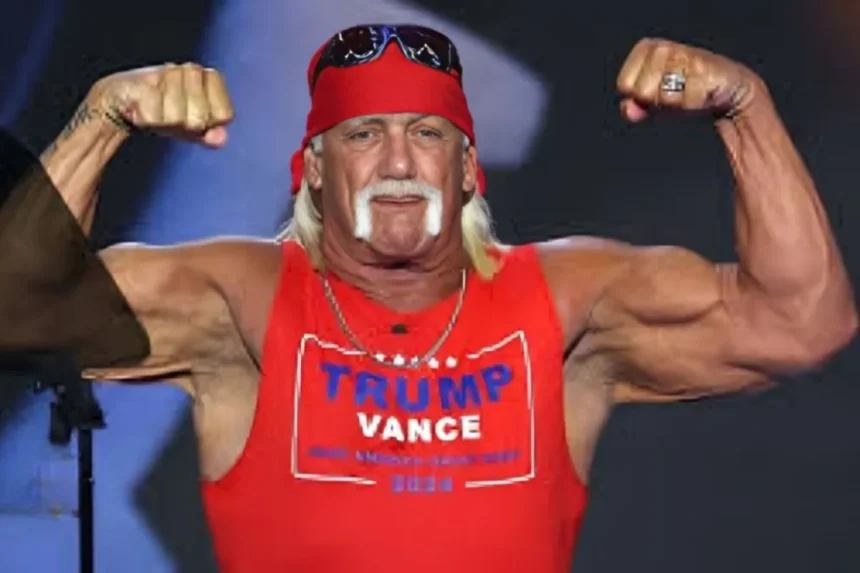Introduction
Hulk Hogan, born Terry Eugene Bollea on August 11, 1953, is more than just a name in the world of professional wrestling—he is an icon. Hulk Hogan is known for his larger-than-life persona, signature yellow and red attire, and his catchphrase “Whatcha gonna do when Hulkamania runs wild on you?” Hulk Hogan transcended the wrestling ring to become a pop culture phenomenon. This article delves into the rise, fall, and enduring legacy of Hulk Hogan, exploring his impact on professional wrestling and beyond.
The Rise of Hulk Hogan
Hulk Hogan’s journey to stardom began in the late 1970s when he made his wrestling debut in the American Wrestling Association (AWA). However, it was his move to the World Wrestling Federation (WWF, now WWE) in 1983 that truly launched his career. Hulk Hogan’s charisma, combined with his towering 6’7″ frame and impressive physique, made him an instant fan favorite.
In 1984, Hulk Hogan defeated The Iron Sheik to win his first WWF Championship, igniting the phenomenon known as “Hulkamania.” His victory marked the beginning of a new era in professional wrestling, where Hulk Hogan’s good-guy persona and patriotic fervor captivated millions. Hulk Hogan’s appeal extended beyond wrestling fans; he became a household name, appearing on talk shows, in movies like Rocky III, and even recording a music album.
Hulkamania and the Golden Era of Wrestling
The mid-1980s to early 1990s is often referred to as the “Golden Era” of professional wrestling, largely due to Hulk Hogan’s influence. Hulk Hogan was the face of WWF’s “Rock ‘n’ Wrestling Connection,” which blended the worlds of professional wrestling and mainstream entertainment. Hulk Hogan headlined some of the most significant events in wrestling history, including the inaugural WrestleMania in 1985, where he teamed with Mr. T to defeat “Rowdy” Roddy Piper and Paul Orndorff.
Hulk Hogan’s appeal was his relatability. He portrayed the quintessential American hero—a man who fought for truth, justice, and the American way. Hulk Hogan’s matches were not just contests of strength but moral battles where good triumphed over evil. Hulk Hogan’s popularity helped WWF (now WWE) achieve unprecedented success, turning wrestling into a global phenomenon.
The NWO and Reinvention
By the mid-1990s, Hulk Hogan’s once-dominant persona started to feel stale. Sensing the need for a change, Hulk Hogan made a pivotal move in 1996 by joining World Championship Wrestling (WCW) and reinventing himself as a villain. At WCW’s Bash at the Beach pay-per-view, Hulk Hogan shocked the world by betraying his fans and forming the New World Order (NWO) alongside Scott Hall and Kevin Nash.
This heel turn revitalized Hulk Hogan’s career and gave birth to one of the most influential factions in wrestling history. The NWO storyline, with its “cool bad guys” aesthetic, helped WCW gain a competitive edge over WWF during the infamous “Monday Night Wars.” Hulk Hogan’s ability to adapt his character from a beloved hero to a despised villain showcased his versatility and cemented his status as a wrestling legend.
The Fall: Controversies and Legal Battles
Despite his success, Hulk Hogan’s career has not been without controversy. In the 2000s, Hulk Hogan’s reputation suffered due to various personal and legal issues. Hulk Hogan’s highly publicized divorce, a controversial reality show (Hogan Knows Best), and a sex tape scandal that led to a lawsuit against the media company Gawker, tarnished his public image.
The most significant blow came in 2015 when a leaked recording revealed Hulk Hogan making racially insensitive remarks. WWE quickly severed ties with Hulk Hogan, removing him from their Hall of Fame and erasing his presence from their website. The incident highlighted the complexities of Hulk Hogan’s legacy—how someone who once symbolized American ideals could fall so far from grace.
Legacy: The Immortal Hulk Hogan
Despite these setbacks, Hulk Hogan’s impact on professional wrestling is undeniable. In 2018, WWE reinstated Hulk Hogan into their Hall of Fame, signaling a cautious rehabilitation of his public image. Fans still revere Hulk Hogan for his contributions to wrestling, and his catchphrases and persona remain ingrained in popular culture.
Hulk Hogan’s influence extends beyond the wrestling ring. He was instrumental in bringing professional wrestling into the mainstream, paving the way for future superstars like The Rock, Stone Cold Steve Austin, and John Cena. Hulk Hogan’s ability to capture the imagination of millions and his knack for reinvention ensured that his legacy would endure, despite the controversies.
Conclusion
Hulk Hogan’s story is one of triumph and tragedy, of a man who reached the pinnacle of fame only to face the harsh realities of public scrutiny. Yet, despite his fall from grace, Hulk Hogan’s legacy in professional wrestling remains intact. Hulk Hogan is a figure who embodies both the highs and lows of celebrity—a man who, for better or worse, helped shape the world of professional wrestling as we know it today.
In the end, Hulk Hogan’s legacy is not just about the championships he won or the catchphrases he coined; it’s about the indelible mark Hulk Hogan left on the industry and the millions of fans who still chant, “Hogan! Hogan!” whenever they see that familiar yellow and red.
Get more info: https://www.timelinetale.com/


